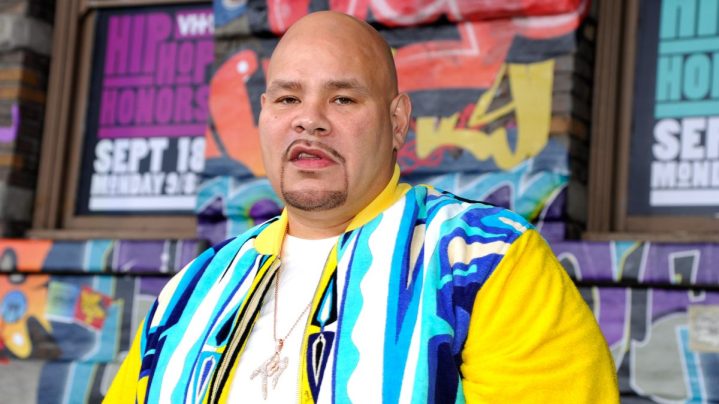Fat Joe’s Comments About Latinos Being Black Left a Lot of Room for Interpretation

Fat Joe attends VH1 Hip Hop Honors: The 90s Game Changers at Paramount Studios. Photo by John Sciulli/Getty Images for VH1/Viacom
During a press stop at Hot 97 in New York, Fat Joe spoke candidly about everything from his legacy (comparing himself to gods), to his continued relevance, an impending retirement, and more before pivoting to a conversation around race.
The Bronx-native says “Latinos are black,” and that sometimes “Latinos may even identify themselves with African and black culture more than black people.” He also went on to talk about racial integration. “Let’s speak about Latinos not being black. Latinos are Black,” Joe said, adding commentary about the millions of slaves in Cuba, and the way “actual Cubans” (it’s unclear if he’s referring to white or Indigenous people) integrated with them. “…they integrated and had babies,” he adds. *crickets*
A visibly uncomfortable Funkmaster Flex made various faces showing his discomfort with the statements, which often seemed to echo the outdated “raceless society” ideology of the past, which Petra R. Rivera-Rideau talks about extensively in her book about Puerto Rico and reggaeton. And some are taking his words to mean that all Latinxs are Black, which is of course not true, but his comment is up for interpretation.
That specific subject, though prompted by absolutely none of the hosts, arose when Ebro Darden touched on the perhaps controversial inclusion of the “Aguanile” sample on Fat Joe’s, Cardi B’s, Anuel AA’s, “Yes.” His defense? “All of music is African,” followed by his aforementioned comment.

As you know, the Hector Lavoe classic is weaved into the song between passionate ass up, face downs. The song, which Joe refers to as “the national anthem of Santeria,” comes from the Yoruba word for “spiritual cleansing,” and originates from the Afro-Cuban Santeria religion. Both are sacred to several communities who understand its spiritual significance, and its inclusion in Fat Joe’s latest surely brushed some feathers.
Though he shares he has a huge painting of the Puerto Rican cantante in his home, Fat Joe admits the song may come across as disrespectful. The upcoming video will apparently pay tribute to its roots, though not everyone on the team agreed on whether or not to go down that route.
But, don’t worry – he says, “This ain’t no crazy thing. Fat Joe ain’t on crack. He know what he talking about.”

Watch the full interview here: